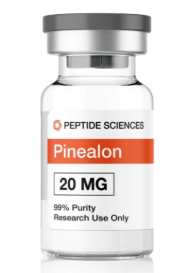If you’ve been following me for a while, you might remember a blog I wrote a while back on the rise in Alzheimer’s Disease and cognitive decline. That article wasn’t just another “brain health awareness” post filling up your social media feed—it was personal. I watched my grandfather, a retired sharp-as-a-tack Army Colonel, slowly lose his mental edge in his 70s due to Alzheimer’s. Physically, the man was a machine. He could still knock out push-ups better than guys half his age, would jump at a full day’s work of manual labor, and was ready to brawl at a moment’s notice. But mentally? The lights started to dim. And that was hard to watch.
It wasn’t just forgetting names or misplacing keys. It was watching someone who still looked healthy become completely dependent on others for the most basic daily tasks. When people ask what my grandfather died of, it wasn’t heart disease, stroke, or even cancer. He died of Alzhemier’s. That kind of decline—where the body stays strong but the mind slips—is something I wouldn’t wish on anyone. And honestly, it was one of the biggest reasons I left traditional primary care, dedicated my practice of medicine on prevenative health, and went back to school to specialize in psychiatry. I wanted to understand the why behind that kind of brain failure and where we are clearly missing the boat on mental medicine paired with physical medicine. And more importantly, what we can do to prevent this type of death sentence.
Brain health is unique in that by the time you’re noticing real memory loss, you’re already late to the game. The brain is one of those organs you have to protect before it slips—not scramble to fix afterward.
You Have More Control Than You Think
There’s a lot you can do right now to protect your cognitive health—and I’m not talking about Sudoku and Wordle (though sure, those help too). One of the biggest things? Reducing chronic systemic inflammation.
Chronic inflammation is one of the silent killers of brain function. It damages the blood-brain barrier, accelerates plaque formation, and interferes with neuronal signaling. The good part about focusing on inflammation reduction is that you get a BOGO deal- what helps your brain also helps your heart. Double win.
My patients love to tease me that I must secretly own shares in the Mediterranean Diet, and honestly—if this diet was a publicly traded company, I’d be all in with my life-savings. The research is endless: olive oil, whole grains, fatty fish, leafy greens, berries, and even red wine—this diet is one of the simplest and most effective ways to reduce inflammation, stabilize blood sugar, and support both brain and cardiovascular health.
Peptides That Help With Brain Function
Now, if we’re talking next-level interventions—stuff beyond nutrition and lifestyle things like stress reducation and sleep—this is where the peptide world comes in. Specifically for cognitive health, my arsenal of peptides include:
-
Semax – a nootropic peptide shown to boost focus, neuroprotection, and even post-stroke recovery
-
Selank – great for reducing anxiety, improving attention, and helping with emotional regulation
-
Dihexa – still in experimental circles but shows promise in neurogenesis and synapse (brain-circuit communication) formation
But if we’re focusing specifically on preservation and repair of cognitive function, especially for people wanting to play the long game?
Pinealon takes the cake.
What Is Pinealon?
Pinealon is a short-chain peptide made up of just three amino acids: Glu–Asp–Arg. That simplicity makes it incredibly efficient at crossing the blood-brain barrier (picture this like a water filter that prevents gunk from entering the brain) and getting to work inside neural tissue.
Originally developed in Russia (I know, I know…) for military and astronaut use (seriously), Pinealon was designed to protect the brain under extreme stress and high-pressure environments. Turns out, it also works really well in the rest of us dealing with long-term oxidative stress, aging, poor sleep, environmental toxins, and the dozens of other things that chip away at cognitive clarity over time.
How Does Pinealon Work?
Pinealon works by:
-
Enhancing mitochondrial function in brain cells
-
Reducing oxidative stress and preventing free radical damage
-
Supporting neuroplasticity (your brain’s ability to rewire and repair itself)
-
Improving cerebral blood flow and oxygenation
-
Stimulating the production of neurotrophic factors (like BDNF)
In other words: it helps your brain protect, repair, and rebuild itself. The rebuild part is rare, as I menitioned before, which is why this is pretty much the only peptide I recommend to my patients for those already suffering from cognitive decline or brain injury.
Dosing and Cycling Pinealon
Pinealon is usually administered subcutaneously (sub-Q) in cycles, because like with most regenerative therapies, your brain needs time to respond and reset.
Here’s a typical protocol I use in my practice:
-
Dose: 100–300 mcg per injection, depending on age and need
-
Frequency: Once daily or every other day
-
Cycle length: 10–20 days
-
Off period: 2–3 months before repeating
I always say: don’t overstimulate the system. This isn’t a daily forever thing, but a tool to support your brain’s healing mechanisms, and then step back and let the body do the rest.
What You Might Notice
Most people don’t feel a huge “jolt” on Pinealon like they might on a stimulant or even a nootropic like Semax. It’s subtle—but real.
Here’s what my patients report:
-
More mental clarity throughout the day (less fog or sluggishness)
-
Easier word recall and quicker conversations
-
Better emotional regulation—especially in high-stress situations
-
Improved sleep quality (yes, this is a brain thing too)
-
A subtle but growing sense of mental sharpness
Again—this is preventative medicine. It’s subtle now, but it could be the difference between your retirement at a lake house or one spent in memory care unit.
Don’t Wait Until It’s Too Late
If you’re waiting for your cognition to decline before you take brain health seriously—you’re already behind the curve.
By the time memory loss, confusion, or personality changes show up, it’s no longer prevention—it’s reaction, which is much harder hill to climb.
Brain health is a marathon. And just like you wouldn’t start training for a marathon on race day, you don’t want to start thinking about brain support when you’re already forgetting appointments or names.
Final Thoughts
Pinealon isn’t magic—but it is evidence-backed, well-tolerated, and one of the best peptides I’ve seen for protecting and preserving cognitive function.
For me, this hits close to home. I’ve seen what it looks like when someone’s brain slowly shuts down, even when their body is still fully functional. It’s heartbreaking—and avoidable in more cases than people realize.
So if you’re interested in optimizing your brain, reducing long-term risk, and being sharp and capable for the next few decades, let’s talk. I’ll help you put together a plan that includes the right labs, the right lifestyle, and the right support—maybe even including Pinealon if you’re a good fit.
Let’s not wait until the lights start to flicker.
-Clay




